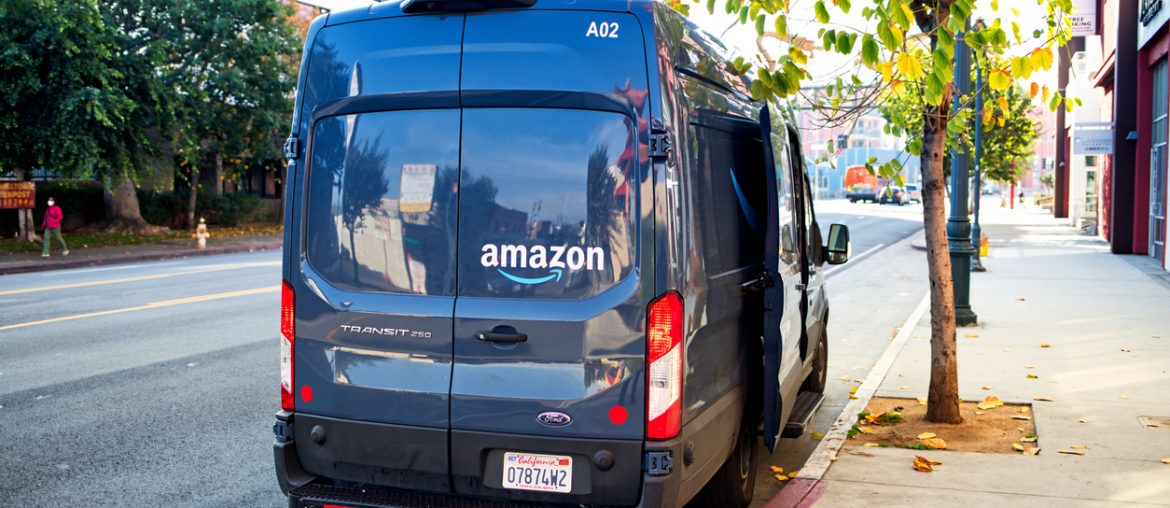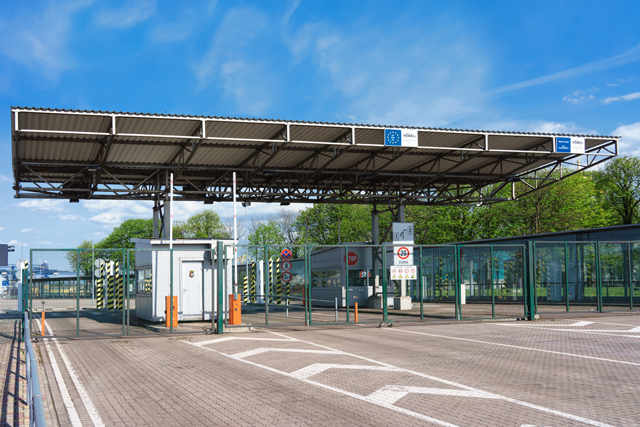It may seem impossible to compete with Amazon’s colossal hold of online sales and delivery, but the company has shortcomings that you can exploit.
With some of the steps we outline and help from Shopify’s Zapiet and WorkWave Route Manager, you can successfully corner a piece of the market with a successful delivery business.
Read on to find out how to compete with Amazon.
Starting a Delivery Business
Purchasing and managing a route is a wonderful investment, especially if you want to be your own boss. However, starting a delivery business may not be as complex as you think.
There are several steps to starting any business, but it begins with preparation.
- Create your brand, including name, design, and brand content. Although this process may be fun, it is a vital step when approaching customers. When drafting ideas, try to focus on an image you would like to present to clients for the first time.
Is your delivery service fast? Dependable? Safe? It could even be all of the above. Then make a simple design and craft some content for an accessible website.
- The next thing you need to do is prepare for startup costs. This includes delivery vehicles, necessary licensing, and insurance. One of the most significant purchases, by far, is the proper insurance—this includes business and commercial vehicle insurance.
- For your business, you will likely investigate some form of general liability or business owner’s policy. These policies and other options have different coverage tailored to your needs. Make sure to look into some form of completed operations coverage for lost or misplaced packages.
Although the cost is high, a good insurance plan will be invaluable in case of a catastrophe. A great piece of advice is to ask about any undisclosed discounts, such as deals for veterans or seniors.
- You will also need to choose transportation. There are several choices for this, including simply using your personal car or truck. However, if you are shopping for a delivery vehicle, remember to consider the size of your transportation, commercial insurance costs, gas mileage, and, most importantly, reliability.
As the vehicle may very well be the most expensive cost at this point in your venture, so take your time and carefully investigate your best option.
Ongoing Costs
Once you have everything prepared, ongoing budget costs. These are the day-to-day costs of running your business, and preparing for these items will save you time and money.
Every business runs into issues, and financial snares are inevitable but budgeting these costs into your overall business plan can save you time, energy, and money.
- Remember the expenses related to your vehicles, such as insurance, maintenance, and gas. When investigating insurance, look for policies covering rental cars so your business isn’t closed if the vehicle isn’t in service.
- Factor in rent for storage or office space. Some of you may start working out of your home, but you will need more space as your business expands. You should also cover your spaces with the appropriate insurance.
- Next, think about maintenance. Beyond investigating auto shops for the best mechanics and deals, we recommend rolling up your sleeves and trying some maintenance yourself. Changing oil, replacing your filter, and trying other more straightforward projects can save you good money.
- Finally, plan for other costs of business, like communication devices, ratchet straps, and marketing. As these are all company expenses, you will have several deductions on your taxes.
Buying a Delivery Route
By now, you must be wondering how you will get your delivery business routes, and it’s far easier than imagined. All you need to do is buy a delivery route. There are several delivery routes, from vending machines to courier circuits, and some are even routes controlled by major corporations like FedEx.
Usually, there are two types of routes:
- Protected routes are routes that are guaranteed closed off from competitors with various conditions. Since these routes are generally a safer bet as the competition is more insignificant. However, the majority of these routes are exclusive to brands that act as the owner’s suppliers. You can purchase the routes, but you must follow the company guidelines of a larger company.
- Independent routes are far more freeing as you will be working as an independent contractor. Like protected routes, you are provided with a pre-established customer book; however, you can also gather other suppliers. The downside is your routes or stops are not protected, so you may have to fight a competitor.
Delivery Routes for Sale
You can choose several routes, and it is wise to research each one to find your preference. The most popular routes are:
- Corporate routes are routes controlled by major corporations like FedEx or Bimbo Bread. These routes are the closest to a traditional franchise where you work with a single company and follow its code of conduct, but your route is protected from competition.
- Vending routes are the routes between snack food distributors and vending machines. These routes are generally less expensive to purchase, but the profit margin is much thinner.
- Bread routes are routes that transport bread to its destination. These routes are often early morning shifts, but the product is much lighter and easier to transport.
- ATM routes are routes that revolve around the owner replenishing cash and repairing the machines. These routes can have big returns but are high maintenance and require more security.
How to Buy a Delivery Route
The first thing you need to do is find a route. Many route brokers can be found on the internet, with websites that feature routes for sale. There are also specialized websites that sell routes.
Delivery routes are generally owned by private parties, regardless of if it’s independent or protected. Like real estate, the seller will gather all pertinent information for the sale and either employ a service or agent.
Route prices can vary wildly. For instance, a route in a highly populated city with multiple stops will cost far more than a route in a sleepy town. There are also the route’s sales, as some deliver cost returns are more than others.
Some routes are inexpensive, but others are significant, so interested parties are often surprised at the wide budget range. The best thing you can do is closely research your options, the routes, what you will be delivering, and your fee with vendors.
If you are interested in purchasing a route but don’t have the collateral, there are other options to investigate. You can obtain a personal or secured loan, but financial institutions generally don’t offer business loans for purchasing a route. Some sellers also provide some form of financing.
It is essential that you research the fair market value of a route before purchase. Find out the conditions of the machines or businesses on the books, your customers’ dispositions and payment regularity, and their locations.
How to Choose a Route
Before signing the papers, take some time to examine your personal strengths and weaknesses. Each route has its own positives and negatives, and choosing the wrong route may ruin an investment. To help, ask yourself a few questions.
- What is my physical ability? Some delivery routes involve heavy lifting, bending down, and hurried movement.
- How much time do I have? Some routes involve delivering products or services at a daily rate, while others need far less attention.
- Do you like structure? If you choose one covered by a larger company, you will have specific requirements to manage the route.
Tips for Running a Successful Route
Once you have your business in order and your routes ready for delivery, you’re almost ready to start. However, here are a few tips to help your bottom line.
- Always work closely with your distributers. By being invested in your duties, you may receive more opportunities to multiply your routes.
- Make sure to keep a close eye on your margins. Saving money by fine-tuning your routes, discovering more cost-effective methods, and adjusting if a sudden profit loss happens can keep your business lucrative.
- If you are hiring a driver, do a thorough driving record check and change your insurance policy accordingly. You will also need to purchase a workers’ compensation policy.
Finally, we recommend investing in helpful apps like Shopify’s Zapiet and WorkWave Route Manager. Zapien helps delivery services in many ways, like access to Shopify’s customers and business-to-customer support. WorkWave offers optimized routing and service management for your deliveries.
With so many different facets of the delivery business that need your attention, allowing a specialized app to handle some of the complex tasks is a great way to compartmentalize duties.
Buying and managing a delivery route isn’t easy work, but it’s one of the few businesses where experience isn’t necessary. If you take the time to plan your moves, choose a route that works for you, and are attentive to the functions and growth of your business, you can give Amazon a run for its money.




